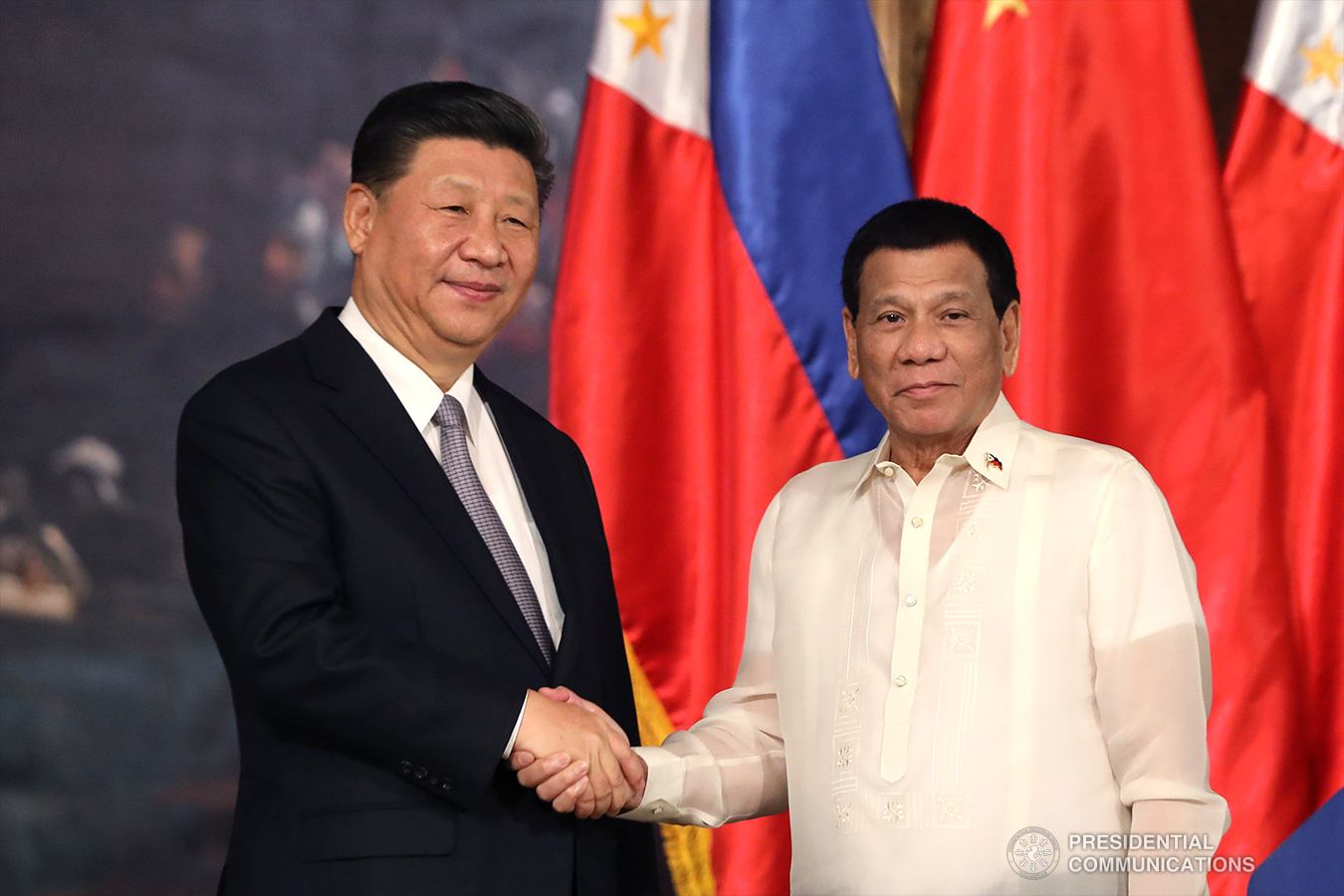Headline
Xi lauded for pushing ‘comprehensive, strategic’ PH-China ties

FILE: President Rodrigo Roa Duterte and President Xi Jinping of People’s Republic of China pose for a photo after declaring their joint press statements during the successful expanded bilateral meeting at the Malacañan Palace on November 20, 2018. ALFRED FRIAS/PRESIDENTIAL PHOTO
MANILA – A political analyst has recognized the importance of Chinese President Xi Jinping’s historic Manila visit on the improving Philippines-China relations under President Rodrigo Duterte’s administration.
“The general significance of the visit is its continuation of the strengthening friendly relations between the two countries,” Ramon Casiple, executive director of Institute for Political and Electoral Reform, told the Philippines News Agency (PNA).
“It is significant that President Xi spoke of ‘comprehensive and strategic’ relations that he wants,” he added.
After their ‘productive’ expanded bilateral meeting on Tuesday at the Malacañang Palace, Xi and Duterte agreed to forge a “comprehensive, strategic cooperation” between the Philippines and China.
“This vision charts a clear course for China-Philippines relations and it sends a strong message to the world that our two countries are partners in seeking common development,” Xi said.
Since Duterte took office in 2016, Xi said the Philippines-China ties turned around, citing efforts to push friendly and peaceful dialogue amid dispute in the West Philippine Sea.
“I commend the President for taking on Jose Rizal’s mantle and for his commitment to an independent Philippines,” Xi said,
Duterte, for his part, said he is pleased with the current positive momentum of the Philippines-China ties, seeking to enhance further the functional cooperation in key areas such as bilateral trade and two-way investment promotions.
“There is a deepening trust and confidence [between] our Governments, and we have greatly increased dialogue and interaction on many levels,” Duterte said.
According to People’s Daily report, trade volume between China and the Philippines in 2017 exceeded USD50 billion for the first time, while Chinese direct investment in the Philippines totaled USD53.84 million, up 67 percent over the previous year.
China has become the largest trading partner, the biggest source of imports, and the fourth largest export destination of the Philippines.
Duterte said he and Xi are committed to forge a “new legacy of friendship and cooperation as we work together in further consolidating ties with our both nations”.
‘Strong desire’ to bolster ties
He said Xi’s visit was a testament to a strong desire to write a new chapter in the history of Philippines-China relations.
“I am hopeful that through our cooperation, opportunities for greater collaboration will further promote the prosperity and success of our nations and contribute to lasting peace and stability in the region,” Duterte said.
After their bilateral meeting, the two leaders witnessed the exchange of 29 signed bilateral documents including memorandum of understandings (MOUs) on cooperation on the Belt and Road Initiative (BRI) and on oil and gas development in the West Philippine Sea.
Casiple said the BRI and exploration agreements are ‘logically’ products of the progressing Philippines-China friendly relations.
Xi said China will continue to do its “modest best” to help and support the Philippines.
“Our support will come in many forms from lending our hand to your counter-narcotics and the counter-terrorism struggle, to helping to repair roads and bridges in Marawi and build new infrastructure there,” Xi said.
He added that China will import more goods such as coconut and frozen fruits from the Philippines.
Xi said China will provide another 50 government scholarship grants for Filipino students on an annual basis from 2019 to 2021 and will implement arrangements for Filipino English teachers to work in China.
He invited Duterte to attend the 2nd Belt and Road Forum for International Cooperation in Beijing next year.
Duterte attended the first Belt and Road Forum in 2017 also upon Xi’s invitation.
China’s BRI is expected to be integrated with the Philippines’ Ambisyon Natin 2040 development strategy and massive infrastructure ‘Build, Build, Build’ program under newly-signed MOU on BRI cooperation.
BRI, known also as One Belt, One Road, was Xi’s brainchild which connects about 80 countries and promotes the flow of people, goods, capital and ideas between Asia, Africa and Europe.





















